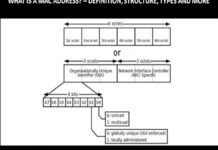With the Internet Protocol (IP) gaining in popularity, many people ask the question: Is there a Significance Of IPv4 Address Leasing? The answer is actually not that important. While a potential benefit of a different Internet Protocol would be increasing security for the Internet, there are a number of other significant advantages to leasing an address space as opposed to getting one from a service provider.
For starters, an address space reservation makes it easier to plan future expansion. Since the addresses that are currently available are all relatively close to being utilized, there is little incentive to expand the network if one’s current numbers are sufficient. One also has the option of choosing a reserved IP address when building a new connection. This will allow connections to other locations in the world, but will prevent expansion into areas where no IP addresses are available. Thus, when a new connection is established it is possible to connect even to areas that were previously not part of the client’s network.
Another advantage of IP-based leases is the ability to enforce constraints on the use of address space by users. Since there is a fixed pool of addresses, a user would have to go through a process of proving that they would not abuse the privilege. In cases where a user exceeds the allowed number of address packets, the network administrator can deny that person access to the Internet. However, this abuse of privilege would only occur with a server that was configured to accept such restrictions. When IP-based leases are used, it is much simpler to enforce reasonable limits on the use of the network.
There is a misconception that using an IP-based lease would make the network more susceptible to external threats. Actually, this assumption is incorrect. Although it would be harder for someone with malicious intent to break into the network using leaching, he would still be able to do so if he had enough knowledge of the various algorithms used to derive the IP address of a given computer. Apart from this, most commonly stolen websites use the port number that corresponds to the domain name. If an attacker can guess the port number, he can easily guess the website’s IP address.
Apart from the above-mentioned scenario, the use of IP-based leases can also reduce the risk of attacks from other attackers. An IP-based address would prevent the possibility of a hacker guessing the IP address of a given computer. An IP-based address makes it hard for hackers to obtain a map of a network using port mapping techniques. An IP-based address also makes it difficult for people to know the internal state of a given computer. If the network was mapped using standard technique, an intruder would be able to determine the software installed on the system and thus figure out the security flaws.
Lastly, if an IP-based address were to be leaked, it would become dangerous since an intruder would know the IP addresses of every machine on the network. The leaked IP-addresses would provide the attacker with all the necessary information on a given system. Thus, the leakage of an IP-based address can reduce the level of privacy provided by Internet. However, an IP-based service has a very high availability since many IP-addresses can be reassigned after a certain period.
In short, we can say that the main reason of IP-based address leakage is the ease with which people can obtain their own addresses and control their own network. On the contrary, the benefits offered by an IP-based service far outweigh the drawbacks. This is the reason why people are increasingly opting for IP-based services rather than going for the traditional static IP address. Moreover, in the future, it is expected that the majority of the networks using the Internet will utilize IP addresses as their main source of identification. Thus, in the future, it is highly unlikely that an IP address leaching can be successfully stopped. For this reason, it is advisable that organizations protect their IP-based service from leaking to prevent any serious issues with privacy.
Leaching of an IP-based service is basically unavoidable as these systems rely on a central database for all the records. Hence, if such a database gets compromised, there would be a major leak of personal information. Thus, organizations must take utmost precaution to prevent IP-leaking. Organizations can do this by using protective software such as Zone Alarm. Besides, it is advisable that you consult a professional in order to ensure that your network is not compromised by this serious issue.
Also Read: The Future Use Cases of Blockchain for Cybersecurity








